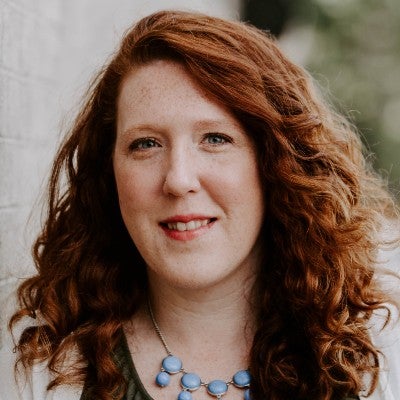Most home insurance policies automatically renew as long as you keep paying your premiums. Generally, your insurance company will send you a renewal notice 30 to 60 days before the renewal date to give you a heads-up and let you know about any upcoming policy changes.
However, in some scenarios, your insurer may inform you that they aren’t renewing your policy for another term. If that happens, you need to move quickly to secure a new home insurance policy and avoid a lapse in coverage.
What to do if your home insurance is canceled or nonrenewed
When your insurance company tells you that they aren’t renewing your policy, you generally have a few options to get or restore coverage:
Address the issue
There are some reasons for nonrenewal that you can’t do anything about, like when your insurer no longer offers policies where you live. However, in some cases, the reason may be related to an issue you could resolve.
For instance, if an insurer issues a non-renewal notice due to an aging roof, you may be able to salvage coverage by having a new roof installed. If that’s the case, you’ll likely need to provide proof of the resolution, such as an official inspection report.
Appeal the nonrenewal
Sometimes, you can repeal the nonrenewal decisions by demonstrating why your policy should be renewed. For instance, you may be able to appeal the nonrenewal with the insurer if the nonrenewal is based on inaccurate information.
Even if you appeal, you should still shop around for home insurance as you await a decision. You have limited time before your coverage ends; if your appeal fails, you will need a backup plan.
Find a new home insurance provider
If you can’t keep your existing policy (or prefer not to), your next option is to get home insurance from another provider. You must do this before your current policy expires to avoid a lapse in coverage. Use the information on your policy declarations page, including coverage levels, deductibles, and premiums, as a baseline to shop for comparable coverage. However, you may want to take this opportunity to adjust your coverage limits.
It may be challenging to find a new home insurance policy depending on the reason for your nonrenewal. For example, if you live in an area that insurers consider high-risk, you might have trouble getting a policy. In that case, you may need to consider alternative insurance options, such as policies offered under your state’s FAIR plan, which we will discuss below.
Haven’t shopped for home insurance in a while? Check out our guide to finding the right home insurance policy.
Common scenarios for nonrenewal of home insurance
Common reasons that your insurer may decide not to renew your home insurance policy include:
-
You filed too many claims. If you have several home insurance claims on your record, your insurer may consider you too risky to cover.
-
Your insurer no longer considers your property coverable. If an aging roof, old plumbing or electrical systems, or other issues create more risk than your insurer is willing to bear, they may not renew your policy.
-
You live in a high-risk area. If your insurance company stops offering insurance in your state or region, you will no longer receive coverage from that insurer. This is a common issue in high-risk states like California and Florida.
-
You added high-risk items to your home. If you added a high-risk feature to your home, like a trampoline or pool, or recently adopted a dog on your insurer’s restricted breeds list, your insurer may decide not to renew your policy.
The difference between cancellation and nonrenewal
If your insurer issues a nonrenewal notice, your policy will expire at the end of the current term. Home insurance companies must give you notice before your coverage ends, though exactly how much notice differs by state.
For example, Florida home insurance companies must provide 120 days’ notice of the policy nonrenewal, while Louisiana home insurance providers only need 30 days’ notice.
Cancellation, on the other hand, happens when the insurer terminates your policy during the policy term. Still, insurers need to provide policyholders notice of cancellation per state laws. Some common reasons that your home insurance policy could get canceled include:
-
You didn’t pay your premiums.
-
You committed fraud, such as filing a falsified claim or lying on your insurance application. This may also be grounds for a complete rescission of your policy.
-
The insurers discover a property risk during the underwriting discovery period, also known as the “free look period,” and determine they’re no longer willing to provide coverage.
-
There was a material change to the risk being insured by the policy, such as the home becoming vacant during the policy period.
How to avoid having your home insurance canceled or nonrenewed
Use the following strategies to reduce the risk of a home insurance nonrenewal or cancellation:
-
Pay your premiums. Your insurer can cancel your policy if you don’t pay your premiums. If you can’t afford your policy, consider adjusting your deductible, dropping unnecessary endorsements, or reducing your coverage levels.
-
Tell the truth on your application. If your insurer discovers you lied on your home insurance application, they may cancel the policy. Make sure to represent yourself and your home accurately.
-
Avoid filing too many claims. Only file claims for losses that you can’t handle on your own. If it’s a minor issue that you can afford to fix, consider paying out of pocket instead of filing a claim.
-
Keep your home in good shape. Repair small problems before they become big ones. Consider replacing older roofs, plumbing, and electrical systems to reduce the risk of a claim.
Alternatives to home insurance after cancellation or nonrenewal
It can be challenging to change home insurance companies unexpectedly, especially if your policy was canceled or nonrenewed due to risk. Fortunately, there are some alternative options available:
Excess and surplus insurance
If you can’t obtain insurance from an admitted insurer, or one licensed and authorized to sell coverage in your state, you can consider an excess and surplus (E&S) insurer. These insurers can sell E&S policies that cover properties traditional carriers won’t, such as those in high-risk areas.
The state doesn’t license E&S insurers, so while they aren’t held to all of the same state regulations as admitted carriers, they are still generally held to specific standards and are often monitored by the state’s surplus lines office instead of the department of insurance. They also usually have their financial condition regulated by their domicile, or home state regulator. E&S insurance can cost more than traditional home insurance policies because it is designed to cover riskier properties. Additionally, while comparable coverage is often available from E&S insurers, sometimes coverage can vary from what you’d typically find in a standard home insurance policy, so always review the policy details.
FAIR Plan coverage
If you can’t buy traditional home insurance because you live in a high-risk area, you may be able to secure a policy through your state’s Fair Access to Insurance Requirements (FAIR) plan.
Also known as “insurance of last resort,” FAIR plans are state-managed insurance programs generally subsidized by taxes and private insurers that pool resources to pay claims. To be eligible, you must be unable to buy a policy through traditional means.
These plans are generally more expensive than traditional policies but offer only a basic level of coverage.
Force-placed insurance
If you have a mortgage and your insurer cancels coverage, you must act quickly to find a new policy. If you don’t, your lender may turn to force-placed insurance.
Force-placed insurance is home insurance that your mortgage lender buys on your behalf when your coverage lapses (or your policy doesn’t provide adequate coverage). The lender buys the policy to keep its interests safe, but you still have to pay the premium, typically through your monthly mortgage payment. Force-placed insurance is often much more expensive than a policy you can buy on your own, and usually provides far less coverage. For example, many forced-placed policies don’t include any coverage for your personal belongings or personal liability.





